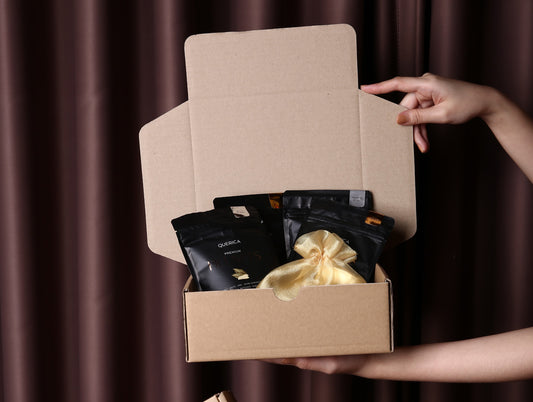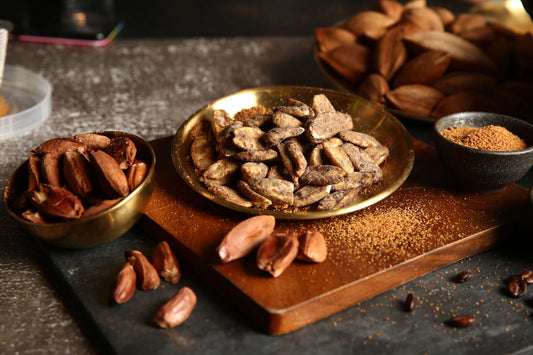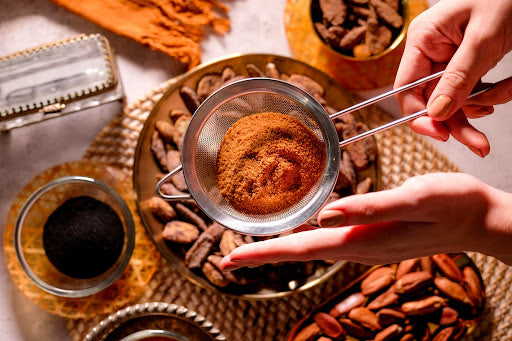From Seaspiracy To Seaspira-See
Seaspiracy--a documentary which premiered on Netflix in March 2021 starring and directed by British filmmaker Ali Tabrizi--has roused polarizing discussions on the environmental impact of fishing around the world. It brings to light the impact of human activities and waste such as plastic marine debris, ghost nets and overfishing: commercial fisheries being the culprits behind it all. Its call to arms: question dolphin-safe tuna labels, condemn sustainable fishing among cultures with rich maritime history, drive attention away from reducing daily plastic use focusing on ghost nets, and completely eliminate the consumption of fish.

Photo by Baptiste Azais on Unsplash
As a brand that supports local communities through our products, (bottled goods and Pili Nuts), collaborations (products from Bidibidi’s community of women) and efforts to aid post-typhoon livelihood recovery (Fleet of Hope) among affected fishermen, we at Que Rica had to take a closer look. The controversial documentary’s many misrepresentations and sweeping statements need to be revisited through hyper-localized lenses.
Seaspiracy: sustainable fishing is impossible
While it is true that thirty percent of the world’s fisheries are overexploited from a 2018 report by the United Nations Food and Agriculture Organization, two-thirds of the world’s fisheries are still operating at sustainable levels according to the same report. Charles Clover, co-founder of the Blue Marine Foundation, argues that “there are examples of people fishing responsibly, and for the benefit of coastal communities. Saying that all fishing is irresponsible is just crass.”
Seaspiracy: we should stop eating fish
This call to action is unrealistic especially for countries and cultures, like the Philippines, that depend on fish for livelihood and food. This statement turns a blind eye on developing, coast-lined countries such as ours who see fish as one of the most affordable meal options. It shrouds the many struggles of small fishermen be it in resources or yield. The UN FAO reports that approximately 120 million people rely on fisheries for food and livelihood. A worldwide fish boycott will deprive smaller fishermen of their livelihood despite their minimal contributions to the destruction of our oceans.
Seaspiracy: discarded fishing nets pose a greater threat to marine life than plastic straws
The documentary argues that banning the use of plastic straws completely won’t contribute to the preservation of marine life, as it claims 46% of the Great Pacific Garbage Patch is composed of discarded fishing nets. The film argues that attention should be made towards addressing that big percentage instead of the land-based plastic waste. What it fails to see, however, is the fact that land-based plastic waste ends up first in rivers and estuaries, breaking down into microplastics and sinks into the ocean floors. The environmental impact of waste should be addressed at every angle.
Our call: buy from small, local fishermen
During weeks of fund-raising drives and boat turn-overs for Fleet of Hope interacting with local fishermen in Camarines Sur, Albay and Catanduanes, we’ve witnessed first-hand how their lives revolve around the bounties of the ocean. We’ve seen wives and children repairing patches on torn, old fishing nets everyday because they’re too expensive to dispose of. This only means that discarded fishing nets at sea do not come from our fishermen--they’re from bigger corporations. We’ve seen fishermen power through passing typhoons with little to no guarantee that their boats--their only ticket to livelihood--will survive. We’ve seen them having less and less catch because of overfishing by enormous fishing companies.
Our call? Buy from our local fishermen if you have access to some of them. This not only guarantees them a steady cash flow, but takes business away from bigger fisheries. If you don’t have access to a local community of fishermen, opt for products that are grown locally and sold at the palengke. These local products tend to have a lower carbon footprint than their imported counterparts in their journey to your plates.
Conservation should not be a choice between humans or nature. Good conservation work puts both humans and nature at the fore.
------
Que Rica is a brand of fine tasting products crafted in Bicol for Filipinos in the world. The brainchild of the Le Cordon Bleu Paris-trained Ched Rica Buenaflor, it takes pride in our culinary traditions while continuing to push the boundaries of what delights the Filipino palate. Local, healthy, and proud will be forever in its DNA. It is owned and managed by Phenomenon Group Inc.
Instagram: @querica.ph
Facebook: @querica.ph
Youtube: Que Rica’s Kitchen
Private Viber Community: Que Rica VIPs
Newsletter Subscription: Subscribe
Customer Feedback: Submit Feedback
Website: www.querica.ph




